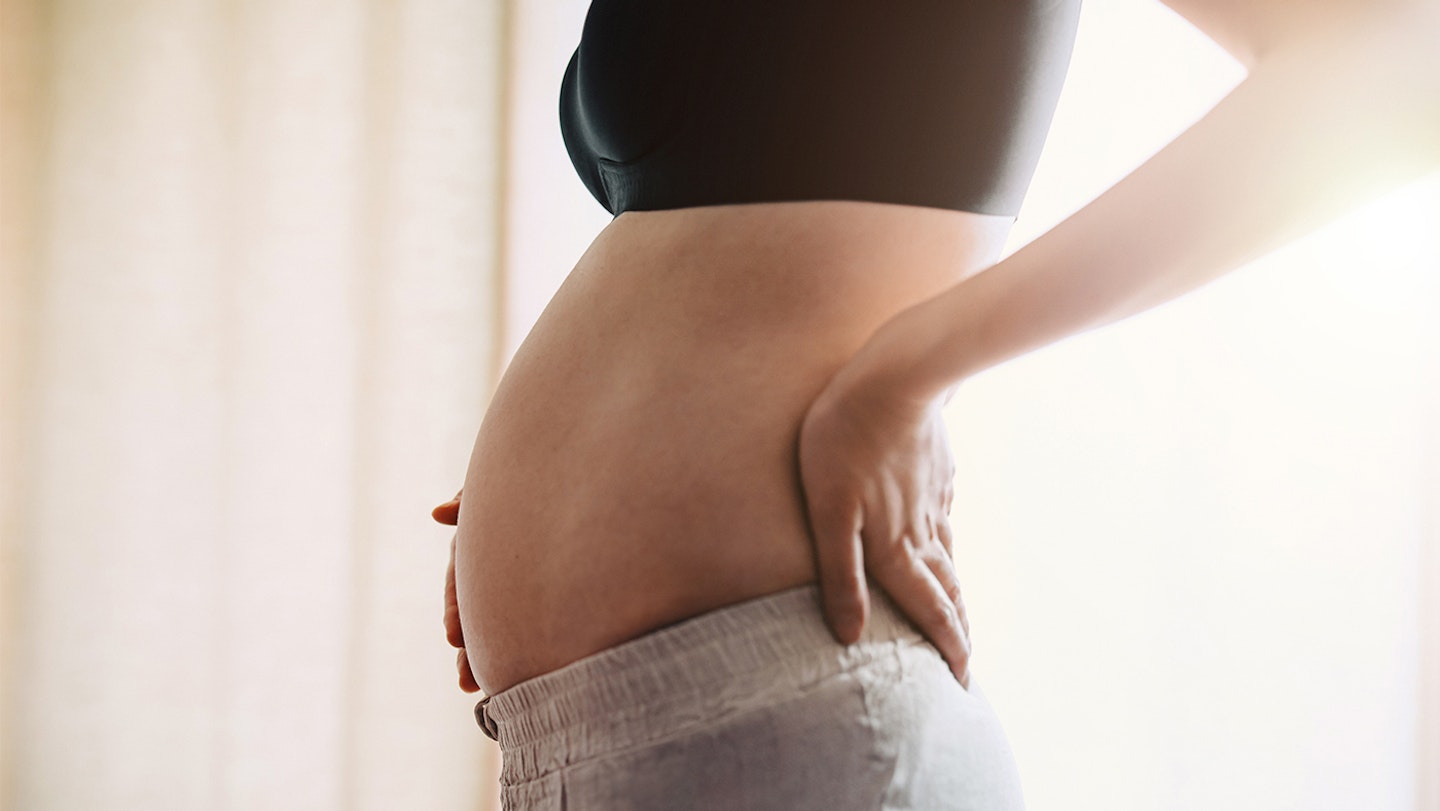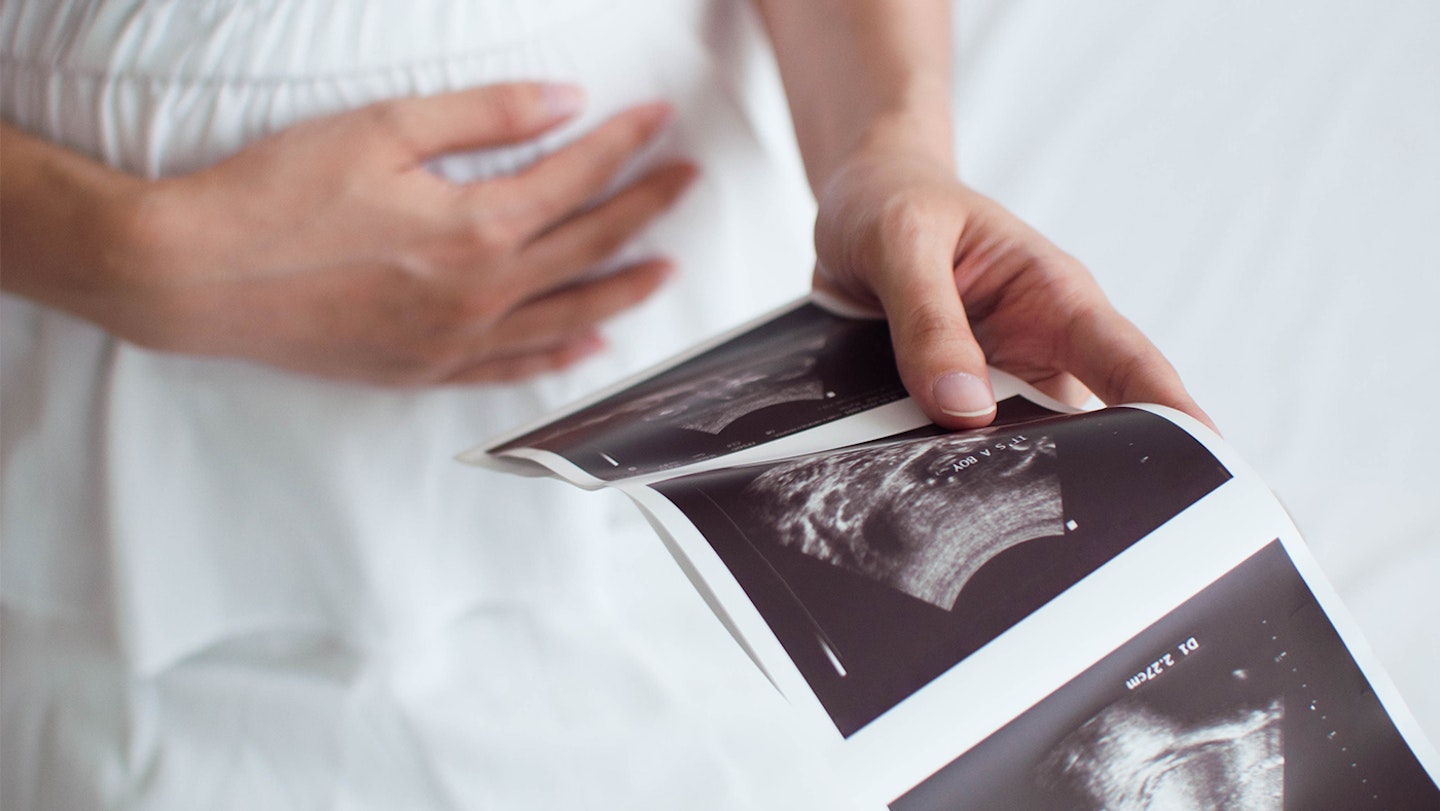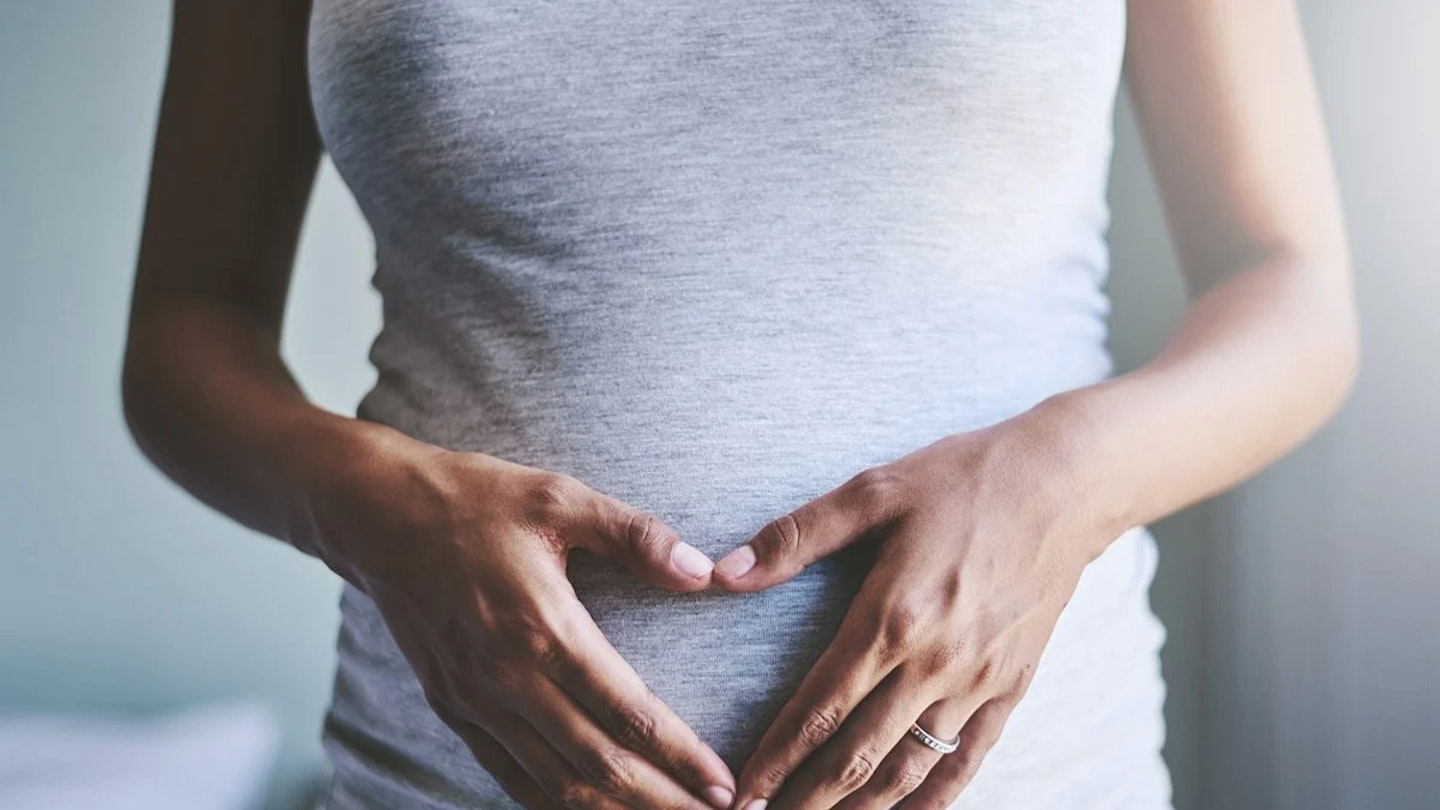Medically reviewed by Dr Claudia Pastorelli Mosca.
The first trimester is probably the most exciting of your entire pregnancy – everything is so new, unknown - and yep, overwhelming. During the next 12 weeks, your baby will turn from a fertilised egg into a 3-inch human who is responsive to sounds. But what can you expect to happen in the coming weeks to your body and your baby? Dr. Claudia Pastorelli Mosca, Gynecologist and Obstetrician, Medical Advisor at Flo Health is here to explain more.
How long is the first trimester?
In the UK, the first trimester of pregnancy starts from the first day of your last period and lasts until you're 12 weeks pregnant.
What happens to my body in the first trimester?
During the first trimester of pregnancy, your body goes through many changes to support your growing baby. Most of these changes at this stage are internal, so not so much visible on the outside.
However, you may start to notice some physical changes, most commonly on your breasts at this point. Swollen and tender breasts can happen due to the pregnancy hormones causing your mammary glands to enlarge. You can also start to notice blue veins around your breasts and small bumps in your nipples, as well as noticing your areolas get darker. You can also start noticing a dark line under your belly button. This is called "linea nigra" and tends to be more evident after 20 weeks and disappear after birth.
Your uterus expands gradually as the baby grows inside. By the end of the first trimester, it becomes more noticeable in your abdomen. So, you may start to notice a slight increase in belly size by the end of the first three months.
Internally a lot more is happening. For example, the blood volume increases, and your heart starts to beat faster to meet the increased demand for oxygen for your growing baby.

What happens to my baby in the first trimester?
During this time, lots of fast changes are happening to your baby.
After fertilisation, cells that were previously only sperm and egg join genetic material and start dividing rapidly into what will form the embryo, the future baby, and the placenta, which will support the pregnancy until the end.
During the first trimester, essential structures and organs like the neural tube, head, eyes, mouth, and heart begin to form, along with major body systems, including the circulatory (heart and blood vessels), nervous, digestive, and urinary.
Also, limbs become visible, and the embryo moves, although the mother usually starts feeling these movements after the second trimester.
When will I see a midwife?
It's best to see a doctor or midwife as soon as you know you're pregnant. According to the NHS, your first midwife appointment should ideally occur before you reach 10 weeks pregnant.
At this appointment, your midwife will be able to answer any questions you might have, advise important supplements, such as folic acid if you are not yet taking these and assess your general health and arrange routine screening tests.
What are first trimester symptoms?
It's common to experience a range of symptoms in the early stages of pregnancy, or you may have none at all. These symptoms are usually caused by rapidly increasing hormones such as progesterone, estradiol, and human chorionic gonadotropin (HCG).
The most common symptom to experience is nausea, with or without vomiting. This is also commonly known as morning sickness, although it can happen at any time of the day, not only during the mornings.
However, even though some nausea and vomiting are expected in the first trimester, Severe, persistent nausea and vomiting are not normal and could be a sign of a condition called hyperemesis gravidarum, where the pregnant person can suffer from vomiting too much, leading to weight loss and dehydration. This is why checking your symptoms with your doctor or midwife is important.
Mood swings and tiredness are also common experiences at this stage. You may also notice swollen and tender breasts, heartburn, indigestion, constipation, and gas caused by the higher levels of pregnancy hormones.

What helps morning sickness in the first trimester?
There are various morning sickness remedies to alleviate nausea and vomiting during early pregnancy. Making dietary adjustments is the first step, such as frequently eating in smaller portions throughout the day and choosing foods that sound appetizing to you. Typically, saucy, fatty, spicy, and fried foods can cause more nausea, so try to avoid those.
Opt for easier-to-digest foods, like bananas, apples, crackers, and smoothies. High-protein foods such as chicken and beans, can also be easier to tolerate. Consider sour or salty snacks. Sour food such as lemonade may soothe symptoms. My personal favourite one is lemon ice cream.
Studies have shown that acupuncture or acupressure and consuming ginger up to 1g a day, in the form of teas, ice cream, or infused water, for example, are safe and actually can help with pregnancy nausea. .
If the symptoms are impacting your life quality or making you lose weight or being unable to drink or eat, talk to your midwife or doctor so they can help you. For hyperemesis gravidarum, you can discuss supplements of vitamin B6 and antiemetic drugs.
Is it common to have diarrhoea in pregnancy in the first trimester?
Diarrhoea in pregnancy is not a common symptom of the first trimester. However, some women may experience gastrointestinal symptoms due to hormonal or dietary changes. Diarrhoea can also happen due to infections, the same reasons why you would get diarrhoea when you are not pregnant. Constipation, indigestion, and increased gas are more commonly reported symptoms during this period.
Drinking plenty of fluids if you are feeling sick or have diarrhoea is important. Consult a healthcare provider if diarrhoea persists or is accompanied by other concerning symptoms like fever, vomiting or abdominal pain.
What weight gain is normal in the first trimester?
Pregnancy weight gain varies, and defining "normal and healthy" is challenging due to individual differences. Factors such as pre-pregnancy weight and BMI, clinical conditions and body composition influence what's appropriate from person to person
To give you a general idea, in the first trimester, there is minimal weight gain, with around 0.5-2 kg throughout the whole 3 months.
Weight gain during the second and third trimesters can be a bit more evident, aligning with the baby's increased calorie needs for growth, and most women gain between 10 to 12.5kg during the whole pregnancy; usually, the majority of this weight gain happens after 20 weeks.
What tests can I expect in the first trimester?
First-trimester testing can be based on individual medical and personal history but these typically involves blood and urine tests, to screen for certain infections, to test for the blood type and to check for other conditions, such as anaemia, when your red blood cells are lower than expected.
Usually, at least two ultrasounds are done during pregnancy. The one during the first trimester is normally done at around 11 to 14 weeks and is known as the 12-week scan or the dating scan.
This scan will check how many babies you are carrying, estimate the date of delivery and check the baby for their measurements, organs and screen for some genetic conditions.
You'll also receive a second anomaly scan during the second trimester between 18 and 24 weeks. In specific cases, more scans could be necessary as you progress through your pregnancy.

How much bleeding in the first trimester is normal?
Light and minor spotting that stops by itself is normal to have during the first weeks of pregnancy. This is called implantation bleeding and happens when the embryo fixes itself in the uterine wall.
However, vaginal bleeding is common during the first trimester of pregnancy. In many cases, it's not a cause for major concern, and typically, they are minor bleeding following sexual intercourse or pelvic exams.
However, bleeding can also signal more serious issues, such as ectopic pregnancy or miscarriage. This is why it's essential to talk to a healthcare provider if any vaginal bleeding happens during any point of pregnancy, especially if it's heavier, persistent bleeding or it's followed by other symptoms such as fever or pelvic pain.
What to eat when pregnant in the first trimester
The first trimester of pregnancy can be a bit challenging when it comes to eating, especially with the onset of symptoms like nausea and vomiting. It's essential to recognise that making only healthier food choices may not always be accessible during this time.
With that said, pregnant women are encouraged to eat a healthy diet that is high in nutrients and low in sugar, salt, and saturated fats. During the first trimester, you don't need to consume additional calories, but you do require higher levels of certain nutrients, such as protein, iron, folic acid, iodine, and choline. Additionally, ensuring adequate calcium, vitamin D, potassium, and fibre intake is essential for both mother and baby's health. These can be found in leafy greens such as spinach, beans, asparagus, oranges, peanuts, beans, and lentils.
Incorporate good sources of calcium into your diet, as this is essential for both maternal and baby bone and teeth development. So, pasteurised cheeses and other dairy products, such as cabbage and kale, are good sources to keep in mind.
Make it a habit to eat various fruits and vegetables daily to obtain essential vitamins, minerals, and fibre, which also helps prevent constipation.

Opt for foods rich in choline, such as low-fat and fat-free dairy, eggs, lean meats, seafood, beans, and lentils, as choline plays a significant role in the baby's brain development. Ensuring you're getting enough protein every day from sources like beans, cooked fish, eggs, meat, and nuts, as proteins are crucial for your baby's growth.
Keep yourself hydrated, limit caffeine intake to a maximum of 200mg a day (there are 100mg of caffeine in a mug of instant coffee, for example), and don't drink alcohol. Studies show that there is no safe amount of alcohol to consume during pregnancy, including a small glass of wine or beer. Even small amounts can bring significant risks to the baby's health.
Can I fly in the first trimester?
Pregnant women can usually safely fly in the first trimester, following the same precautions as the general population. Recent studies indicate no increased risk of adverse pregnancy outcomes for occasional air travellers.
Occasional air travel is generally safe for pregnant women without medical or pregnancy risks.
However, as most obstetric emergencies occur during the first and third trimesters, travelling at all might not be recommended if you risk any common obstetric complications that can worsen during flight or require emergency care.
So, it's always good to check with your doctor if flying is ok for you at any point of pregnancy, and they can also give you recommendations for when you are travelling to minimise some risks, making you feel more comfortable during the trip.
Also, when planning your trip, checking if you need additional travel health insurance if you are travelling internationally and what hospitals you can visit in an emergency is very important.
Because the chance of going into labour is naturally higher after 37 weeks (or around 32 weeks if you're carrying twins), you may find that some airlines won't let you fly towards the end of your pregnancy.

What are the best exercises for the first trimester?
Pregnancy is a great time to start or continue exercising gradually and with caution, whether you're an athlete or a beginner. Research shows that exercising during pregnancy can lead to improved sleep, limited weight gain, and reduced risk of complications, benefiting both you and your baby. Doing exercises doesn't harm your baby and does not increase your chances of a miscarriage.
So as long as you have no medical or pregnancy complications, and your health care provider's ok, all the common exercises are allowed. Walking, swimming, yoga, traditional strength training, and pilates are excellent options and typically recommended exercises to start doing during pregnancy. It is recommended you search out pregnancy-specific classes and teachers such as pregnancy yoga.
However, exercises that can provoke a severe fall should be done with care or avoided, such as downhill skiing, horseback riding, hockey, and mountain biking, as falling can lead to complications for your baby. Contact sports, such as judo, boxing, or squash, should be avoided due to the risk of being hit.
Activities such as scuba diving, skydiving, or any sports above 2500m of altitude should also be avoided due to the risk of altitude or pressure sickness and the risk of hurting yourself.

Is paracetamol safe in pregnancy during the first trimester?
Paracetamol (also known as acetaminophen) is used to relieve mild to moderate pain and reduce fever, and it is the main pain relief option during pregnancy and is generally considered safe to take during pregnancy according to the NHS.
However, there's some evidence suggesting that taking too much paracetamol in pregnancy can be harmful, so it's best to use the smallest effective dose for the shortest time needed to ease pain or discomfort (one or two 500mg tablets, every 4 hours up to 4 times in 24 hours with a maximum of 8 tablets in 24 hours).
Like any other pain medication, Paracetamol should not be taken for days or even weeks without careful consideration and medical advice.
About the expert
Dr. Claudia P. Mosca is a board-certified obstetrician and gynaecologist and medical advisor for Flo Health, based in Berlin, Germany. She discovered her love for obstetrics and gynaecology while in medical school, thanks to an inspiring and passionate professor. After taking classes and observing prenatal appointments with high-risk pregnancy patients, it sparked an immediate interest and even fascination for the incredible transformation the female body is capable of.
